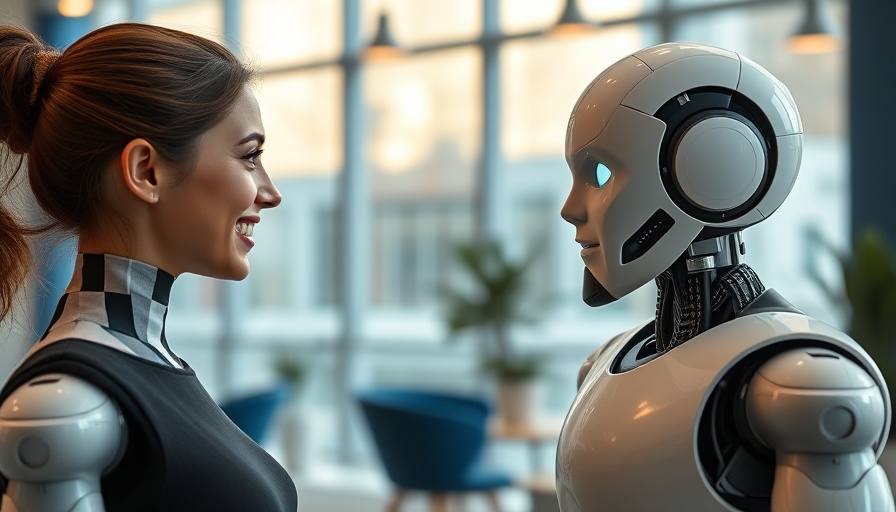
What Does Fairness Mean in a Tech-Driven Workplace?
As the workplace evolves with the rapid advancement of artificial intelligence (AI), the concept of fairness is becoming increasingly complex. Based on insights from Deloitte's 2025 Global Human Capital Trends report, leaders are confronted with tough choices regarding the distribution of rewards generated by AI. A striking statistic reveals that while 56% of employees feel it's essential to share AI-created rewards, a mere 23% of organizations are proactively doing so. This discrepancy raises vital questions about what fairness truly looks like in a modern workplace.
The Dilemma of Compensation: Human vs. AI
The ongoing debate about compensation reflects a broader challenge: Should the productivity gains achieved through AI directly benefit employees? Organizations are exploring various paths, from sharing financial rewards with frontline workers to utilizing AI efficiencies to support innovative work schedules such as four-day workweeks. Such adaptations not only promote employee satisfaction but also redefine the traditional employer-employee relationship, creating opportunities for all workers to thrive.
Are Employees Beginning to View AI as Coworkers?
Another fascinating point raised by the Deloitte report is the evolving perception of AI among employees. With approximately 60% of workers considering AI to be a coworker, companies must rethink their approach to integrating technology in ways that enrich human capabilities rather than diminish them. As technology continues to evolve, blurring the lines between human and machine collaboration, organizations will need to address how to foster this new dynamic. The recommendation to revise the employee value proposition (EVP) becomes critical as companies aim to achieve human-centric and business-centric outcomes.
The Unseen Impacts of AI: Loneliness and Burnout
Despite the efficiencies AI brings, concerns around its psychological impact on employees cannot be overlooked. The Deloitte report highlights an alarming potential for AI to diminish face-to-face interactions, leading to feelings of loneliness and increased burnout among staff. Leaders need to proactively address these silent impacts of technology on workforce morale. An inclusive EVP that explains how AI influences work environments—and balances technological requirements with human needs—will be crucial in creating fair workplaces.
Future Predictions: Trends Shaping AI and Work
Looking ahead, organizations must adapt to a landscape where AI not only replicates tasks but also augments human capabilities. This convergence presents a significant opportunity: leveraging AI's strengths to enhance workers' potential. As organizations transition into this new paradigm, they will have to reevaluate their definitions of fair work in an AI-integrated world. Prioritizing human-centric approaches will be essential not just for employee satisfaction but for achieving overall business success.
Common Misconceptions About AI in the Workplace
A common misconception is that AI's role is solely to replace human labor. However, Deloitte's findings emphasize that the value of technology lies in its collaboration with humans. Discarding this notion can lead to better acceptance of AI as a tool that complements human skills. As organizations embrace this perspective, they can foster a more collaborative workplace, enhancing employee engagement and productivity.
Actionable Insights for Organizational Leaders
As we unravel what fairness means in AI-enabled workplaces, leaders can adopt a few actionable strategies. First, engage employees in conversations about how AI affects their jobs to build a sense of inclusion. Second, consider allocating a portion of AI-generated profits to employee incentives or coaching programs, enhancing the value workers derive from these advancements. Lastly, fostering a culture that embraces AI as a partner instead of a replacement may help alleviate anxieties related to job security.
In conclusion, understanding and redefining fairness in an AI-driven work environment is not just a task for HR departments; it is a collective journey for leaders and employees alike. As we navigate this uncharted territory, it is imperative for organizations to commit to strategies that uphold fairness and prioritize human well-being. Without this commitment, the promise of AI remains untapped, potential rewards unshared.
 Add Row
Add Row  Add
Add 




Write A Comment